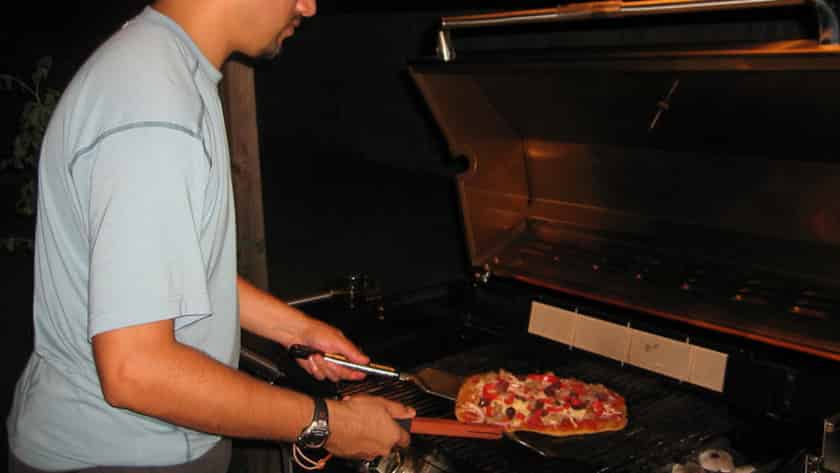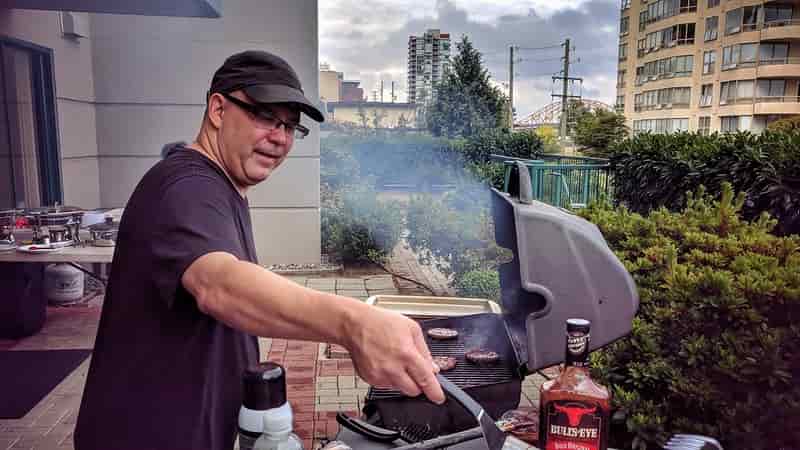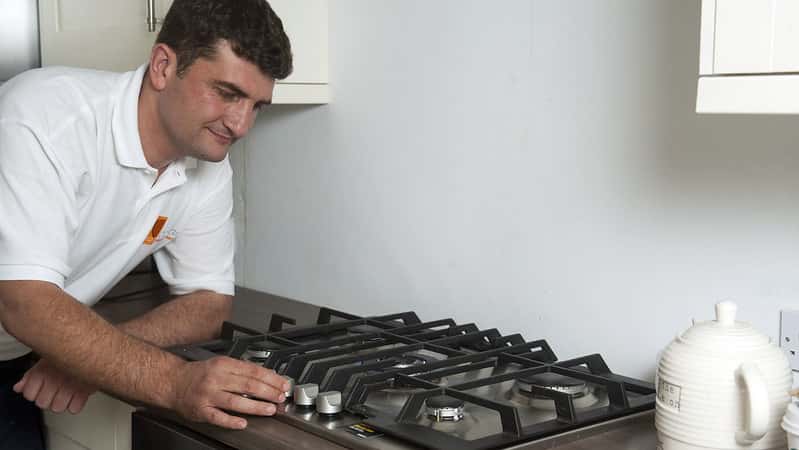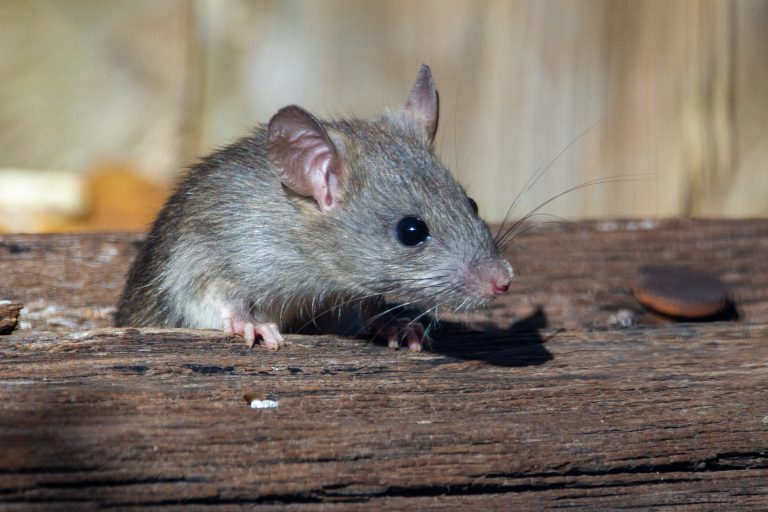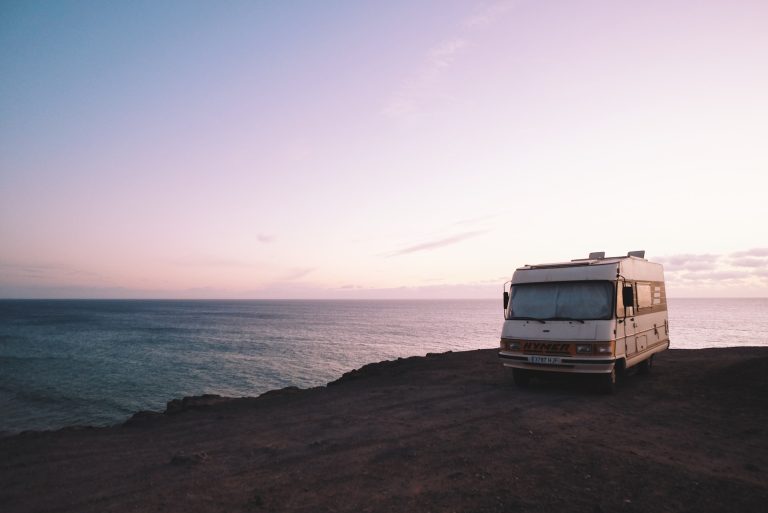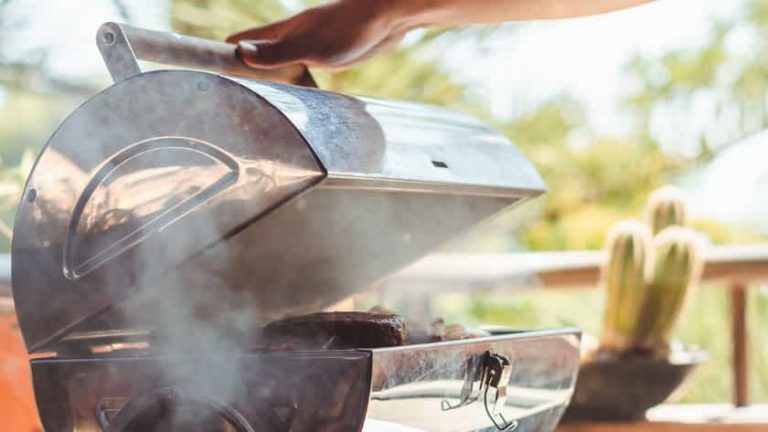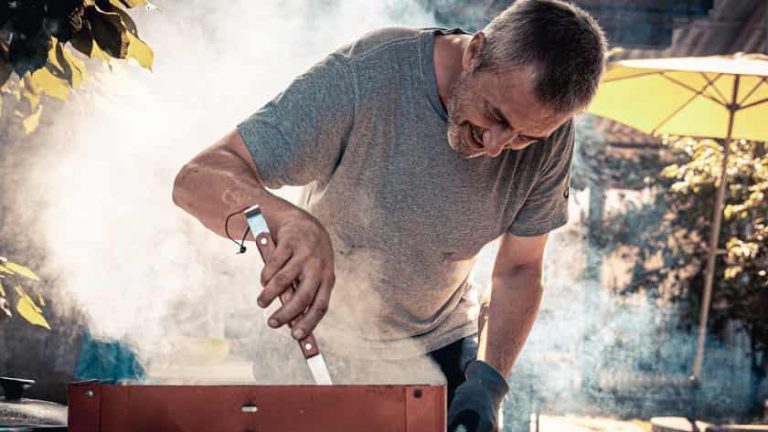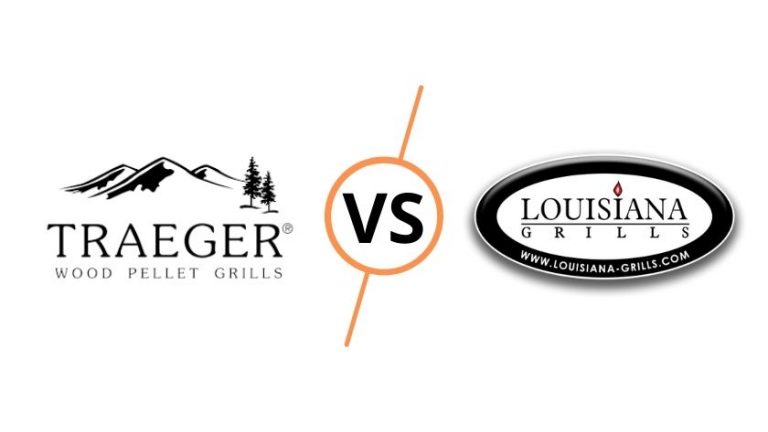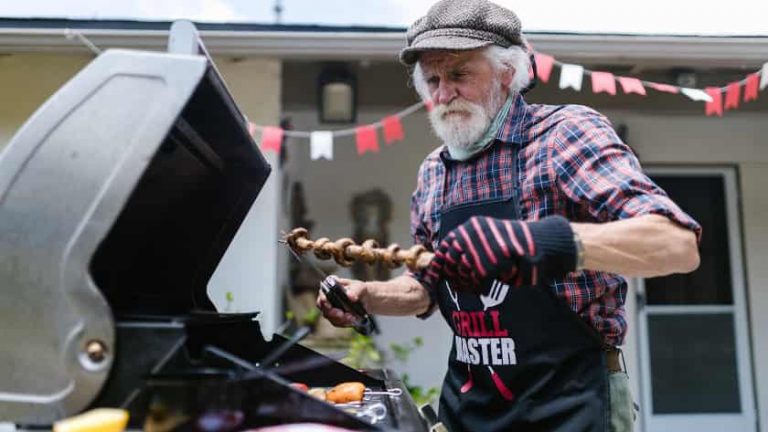Is Propane Grill Safe To Use Indoors? No – Here’s Why
The summer is here which means BBQ grills and chillers are essential with great family time. But sometimes, due to seasonal changes, it is not possible to use a propane grill outside.
But does that mean you should grill inside? As prolonged and fun it may sounds but it is not advisable to grill inside even if it rains outside or any sort of weather calamities occurs.
A propane grill is designed to be used outside and it has its reasons. So why risk putting on so many efforts into it for it to just be a disaster at the last moment.
Not just propane grill in general carbon grill is also unsafe while used indoors. And there are several possibilities of it creating a disaster or a huge fire which would cost lives.
As much as you love grills and having BBQ nights with your loved ones. You must keep in mind why propane grill could be dangerous.
5 Reasons Not to Use Propane Grill Indoors
Possible Carbon Monoxide Release
Carbon monoxide is a big concern when it comes to propane grills because most indoor grills don’t have active ventilation or don’t use it.
However, all kinds of food ash and oily crud will build up around the burners on a propane grill, potentially resulting in poor combustion and thus a possible carbon monoxide hazard.
Grills are a common cause of carbon monoxide poisoning. Carbon monoxide is emitted from both propane and charcoal grills as a by-product.
It’s possible that failing to adequately ventilate the grill will result in a deadly situation for those who are near it. Grills emit a lot of carbon monoxide, and if you don’t take the proper precautions, they can harm anyone in the area. Be sure to keep your grills out of confined spaces and away from your home.
Carbon monoxide poisoning is a severe problem that kills a large number of people each year. Carbon monoxide poisoning can occur from a variety of sources.
Investing in a carbon monoxide detector will assist you in determining whether or not you are being exposed to the deadly gas. For safety install a carbon monoxide detector on each floor of your house.
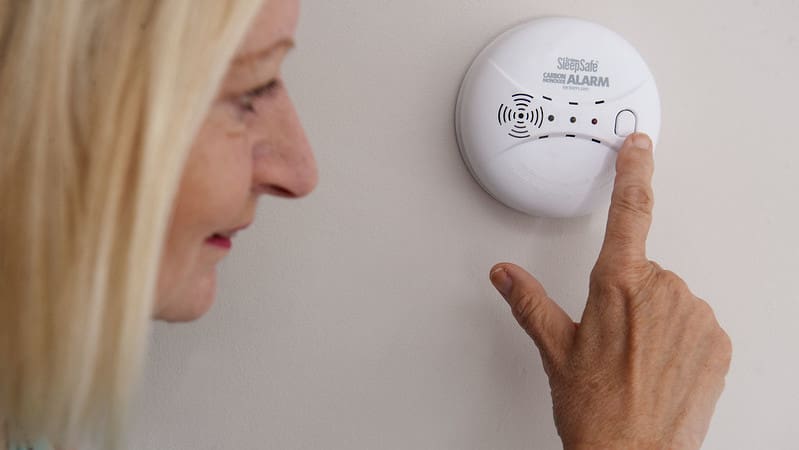
Possible Leaks and Fire
Leaks and fire are common when it comes to propane grills. Since fats in foods drip down over the burners in a grill, a huge amount of smoke can easily be generated, posing a health risk.
This oil can also trigger massive flames, posing a fire hazard. When used outdoor it’s easy to extinguish a small fire, but when used indoors the fire can quickly spread posing threat to your own safety.
Using a propane grill indoors is usually a bad idea for several reasons. There could be a huge leak and it will not be detectable if you are a beginner in grilling.
How to know if there is a leak? There would be a smell of rotten eggs if there is a propane leak.
While the Propane gas itself has no odor. Propane companies add mercaptan to it that gives its distinctive “rotten egg” smell. Switch off the gas tank and grill if you detect a gas leak by smelling it or using the soapy bubble test, and there is no flame.
The effect may be disastrous if propane gas escapes from connections or valves and goes undetected by carbon monoxide detectors.
However, if you want to use propane grills inside then you must follow strict safety precautions.
Propane Toxicity When Inhaled
Sometimes while grilling indoors, we make mistakes by inhaling propane which is dangerous and can lead to many health problems.
Propane vapor is not poisonous, but it can cause asphyxia. If you’re exposed to high amounts of propane, it will displace the oxygen in your lungs, making breathing difficult or impossible.
Propane is a colorless, odorless gas that is used to power certain gas grills. Propane exposure can occur by direct contact with the skin and eyes or inhalation of the fumes.
Propane is an asphyxiant, blocking the flow of oxygen in the body. Exposure can result in suffocation and death. When inhaled at high levels, propane can cause unconsciousness, seizures, and cardiac arrest.
When liquid propane comes into contact with the skin, it can cause frostbite. Exposure to even low levels of propane can result in headaches, nausea, numbness in the arms and legs, and vomiting.
Weight loss, conjunctivitis, memory loss, and skin discoloration may all be long-term symptoms.
Grills are also a common cause of carbon monoxide poisoning. Carbon monoxide is emitted from both propane and charcoal grills as a by-product. Grills emit a lot of carbon monoxide, and if you don’t take the proper precautions, they can harm anyone in the area.
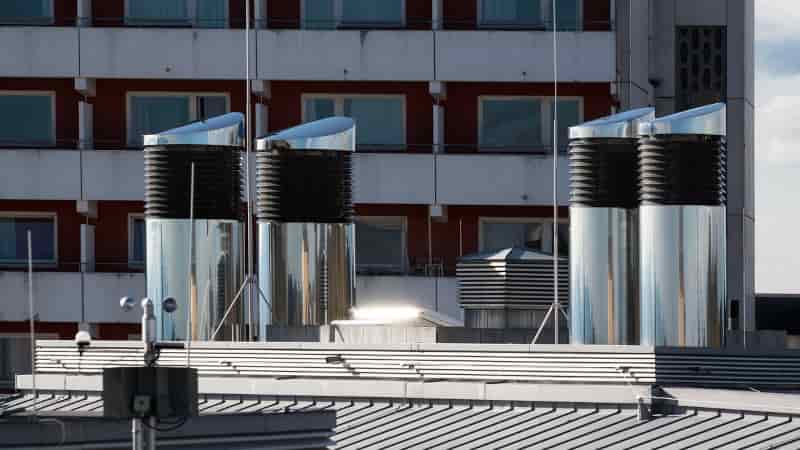
Require Proper Ventilation To Use
Carbon monoxide poisoning can occur rapidly if adequate ventilation is not provided. When you burn propane grill outdoor the carbon monoxide produced gets easily displaced by air. But when you use a grill that is intended for outdoor use inside you need proper ventilation in place.
Part of the appeal of constructing an outdoor kitchen is the ability to cook with grills that aren’t suitable for indoor use. However, the smoke and fumes from these BBQ pits must also be disposed of.
This is where adequate ventilation comes into play. The best ways to fix this problem and ensure that your outdoor kitchen is as comfortable and pleasant as possible are to use vent panels and vent hoods.
Vent panels are necessary if you’re building a BBQ island in a propane or natural gas set to disperse the gas and protect the outdoor kitchen in the event of a leak.
Ventilation is also very costly yet does not guarantee 100 % safety.
Propane (LP) is heavier than air and thus sinks. As a result, propane vent panels must be mounted as close to the floor as possible.
With propane, the main problem is the placement of vent panels, as the gas will build up within a BBQ island and potentially combust if a leak occurs.
As a result, getting a propane grill indoors is not an option.
Propane Grills Are Not Designed for Indoor Use
Propane grills are not designed in a way that they can be used indoors. They are designed for outdoor grills and thus should only be used for that purpose.
Since propane contains carbon monoxide, the gas builds up in the room due to a lack of adequate ventilation, causing extensive harm.
The propane outdoor griddles appear to heat up faster than the regular ovens we use in the kitchen, posing a significant fire hazard.
Even, if propane gas escapes from connections or valves and goes undetected by carbon monoxide detectors, the consequences may be disastrous. However, if using propane griddles indoors is needed, strict safety precautions must be followed.
Carbon monoxide is not and has never been ideal for the body’s health. A typical oven has a vent from which all of the gas escapes.
The griddle, on the other hand, is not at all insulated, which means that all of the gas emitted will build up in the room, posing a danger to you.
Propane griddles produce too much heat, which may result in a fire if used indoors. For example, placing it too close to a wall might cause the house to burn down in minutes.
Some Preventive Measures
Here are several safety tips for using a propane griddle indoors. However, we reiterate that you cannot use your propane griddle indoors.
- To begin, make sure the connections, valves, and gas tanks are all cross-checked each time we want to use the griddle. Make sure it’s not too close to the wall and that anything flammable is out of the way, or we can use it in a space.
- Second, make sure that space is well ventilated so that carbon monoxide does not build up too easily. We should also not leave the griddle unattended, as this could result in a lot of damage.
- Finally, make sure the carbon dioxide detectors are mounted in the building. If there are any leaks, this will be detected. The monitor will sound an alarm, giving us enough time to defend ourselves. When using the propane griddle, stay alert. There are numerous dangers that you might face.
Now that we know it’s not a good idea to use a propane griddle indoors, we’ll need to use it with extra care. It is inexpensive, and we can use it whenever we want.
However, we should always check its status before using it, and children should be kept away from it. However, there should be no need to use the propane griddle indoors, as doing so could put your life in danger.
The General Argument to Why You Can Use Propane Stove Indoor but Not Propane Grills?
The propane stove is much safer to use indoors than propane grills because of few reasons:
Less carbon monoxide released in propane stove:
When propane gas is burned, it produces both heat and deadly carbon monoxide, which cooks your food.
This gas can be generated by both propane stove and grill, but the grill will produce a higher volume and at a faster rate. Both have the potential to kill you, but the grill is more likely to do so.
With proper ventilation propane stove is less harmful:
Yes, a propane stove can be used indoors instead of a propane grill. However, it is still dangerous because of the way gas can build up without proper ventilation and space.
If you use a propane stove indoors, you must make sure it is in a well-ventilated location, it is turned off after use, and it is cooking near an open window.
And these things are not possible with a propane grill because of its high release.
Propane stoves are safe if they have UL certification:
Propane stoves are very safe especially if they have the UL certification i.e, underwriter certification. UL is an organization that test product through a various process which makes it safe to use. And this will not be possible in propane grills as they do not provide UL-certified propane grills.
Propane stove requires less space: Propane stoves require less space than the propane grill. The propane grill would require so much space that would create a problem with ventilation and space.
Conclusion
BBQ grills are beautiful when done with all safety measures. And grilling is made for outdoors only. So, why take unnecessary risks?
Propane grills are easy to use when done in the right way. It eliminates the need to look for the right wood pellets or briquettes.
Furthermore, there is no need to clean up after the group since there is no ash to deal with. The best thing is that propane grills don’t release any toxic chemicals or gases that can lead to serious illnesses like cancer.
If you’re new to grilling or have reservations, the safety of propane grills is never in question. No one would buy them if they were that dangerous, and they wouldn’t be as common as they are now.
Propane grills are extremely secure when used properly, and they can last for years without causing any problems. Just make sure you do not use them inside your home to avoid any unnecessary circumstances.
Related Post To Consider
Best Gas Grills Under $500 Review & Comparison
Best Ways To Light Your Charcoal Grill | Fast, Easy & Safe
